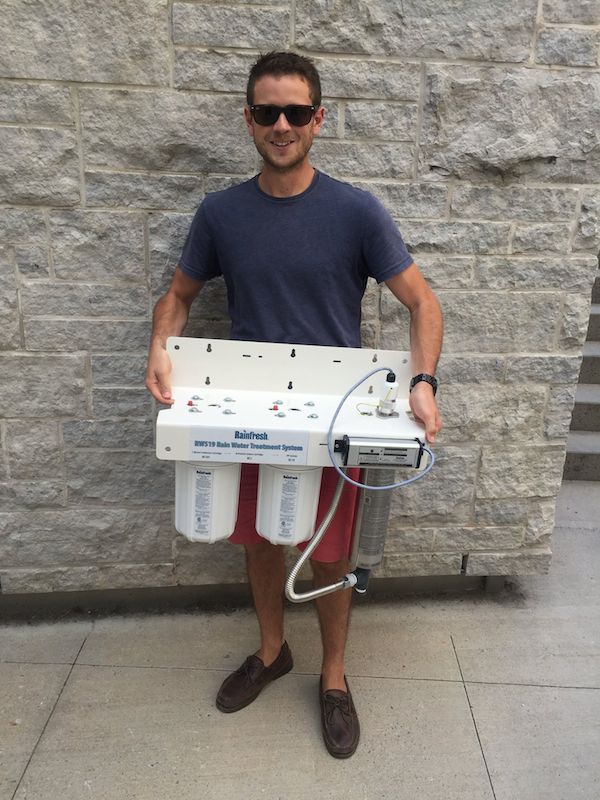
06 Aug Rainfresh sponsors Queen University’s Solar Design Team
Sustainability isn’t just something we should do – businesses and people around the world need to start planning for the future in innovative and eco-friendly ways. Queen’s University’s Solar Design team is doing exactly that.
This team’s latest goal is to build a net-zero home that is 100% sustainable and not connected to the campus’s utilities. QSEC, the home, will be powered by photovoltaic and battery energy, and heated by solar thermal technology. For drinking and wash water, the team will use Rainfresh’s RW519 Rain Water Filtration System that filters stored rainwater to make it safe to drink. The system kills or inactivates bacteria such as E. coli, parasitic cysts and viruses, reduces sediment down to one micron , and reduces undesirable tastes and odour. This technology delivers fresh drinking water in an eco-friendly way.
Interested in making your home more sustainable? Here’s how to DIY: Recycle your rainwater for safe home use.


